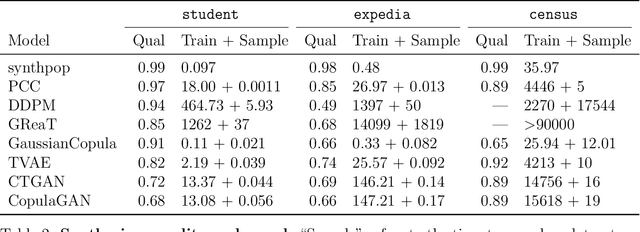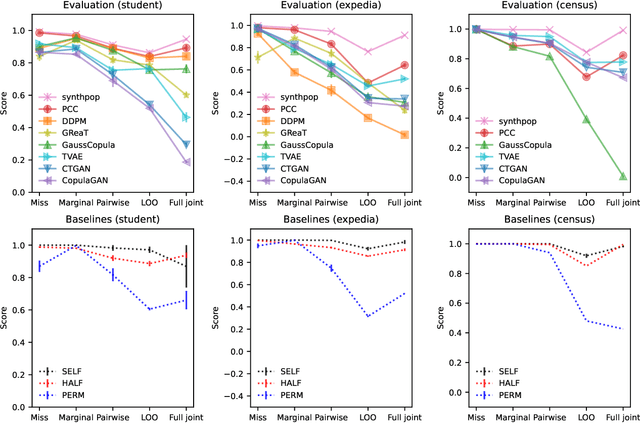Structured Evaluation of Synthetic Tabular Data
Paper and Code
Mar 29, 2024


Tabular data is common yet typically incomplete, small in volume, and access-restricted due to privacy concerns. Synthetic data generation offers potential solutions. Many metrics exist for evaluating the quality of synthetic tabular data; however, we lack an objective, coherent interpretation of the many metrics. To address this issue, we propose an evaluation framework with a single, mathematical objective that posits that the synthetic data should be drawn from the same distribution as the observed data. Through various structural decomposition of the objective, this framework allows us to reason for the first time the completeness of any set of metrics, as well as unifies existing metrics, including those that stem from fidelity considerations, downstream application, and model-based approaches. Moreover, the framework motivates model-free baselines and a new spectrum of metrics. We evaluate structurally informed synthesizers and synthesizers powered by deep learning. Using our structured framework, we show that synthetic data generators that explicitly represent tabular structure outperform other methods, especially on smaller datasets.
 Add to Chrome
Add to Chrome Add to Firefox
Add to Firefox Add to Edge
Add to Edge